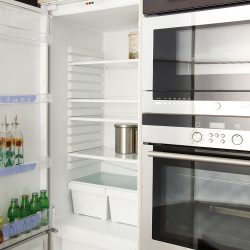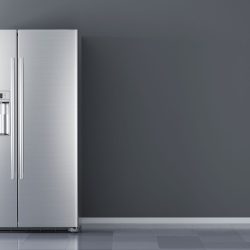Do you hear weird noises from your fridge? If so, do you wonder why it sounds like that? Don't worry. We got your back. To help you, we researched potential causes of this sound. Here's what we found.
If you hear a frog-like sound from your fridge, there are several reasons behind it. Thus, it is best to locate where it is exactly coming from. Below are common reasons for this noise.
- Overstuffed with goods
- Frost build-up
- Loose or unsecured parts
- Damaged internal parts
- Restricted water valve
- Uneven rollers
In this post, we present a detailed discussion covering reasons for this strange sound from your fridge. We'll also explore related topics, such as related hazards, solutions, and other concerns about a refrigerator. So, please keep reading to learn more.

Should You Hear A Refrigerator Running?
Like other kitchen appliances, fridges create operational sounds when you switch them on. You can hear these vibrations, whether your cooler is new or old. The source may be from behind, the bottom, or inside.
Although they are inevitable and normal, their volume or loudness should be moderate and not disturbing. Otherwise, they are unusual and a potential sign of mechanical problems in your refrigerator.
What Are The Common Noises Do Fridges Produce?
Depending on the brand or model, your fridge produces different noises. So, here are some common ones you may encounter.
Buzzing or Humming
Similar to a car engine, the compressor motor intermittently rattles. So, this sound is normal.
Hissing or Gurgling
This bubbling vibration is from the flow of compressor oil. Likewise, it is audible when you have a brand new fridge. Yet, this will settle a few months after.
Beeping or Clicking
It comes from the defrost timer and thermostat. Similar to an ordinary clock, it signals the start and end of the auto-defrosting cycle.
Cracking
Cracking sounds are present when blocks of ice melt during defrosting, or when cubes drop from the ice maker. Although it may sound scary from afar, it is nothing to fear.
Knocking
This noise suggests the compressor motor is not secure in its ideal position.
Tapping
When glass containers or bottles are side-by-side, they create a tapping sound. You can easily separate them to stop it.
Likewise, level the tilted cooler properly to prevent imbalance. You can also move it away from the countertops or cabinets if it is too close.
Why Is My Fridge Making A Weird Sound?
Below are some reasons for a weird fridge sound.
Overstuffed With Goods

Too much food or drinks inside the fridge blocks the vents. In return, the machine exerts more effort to make the unit colder.
Frost Build-up
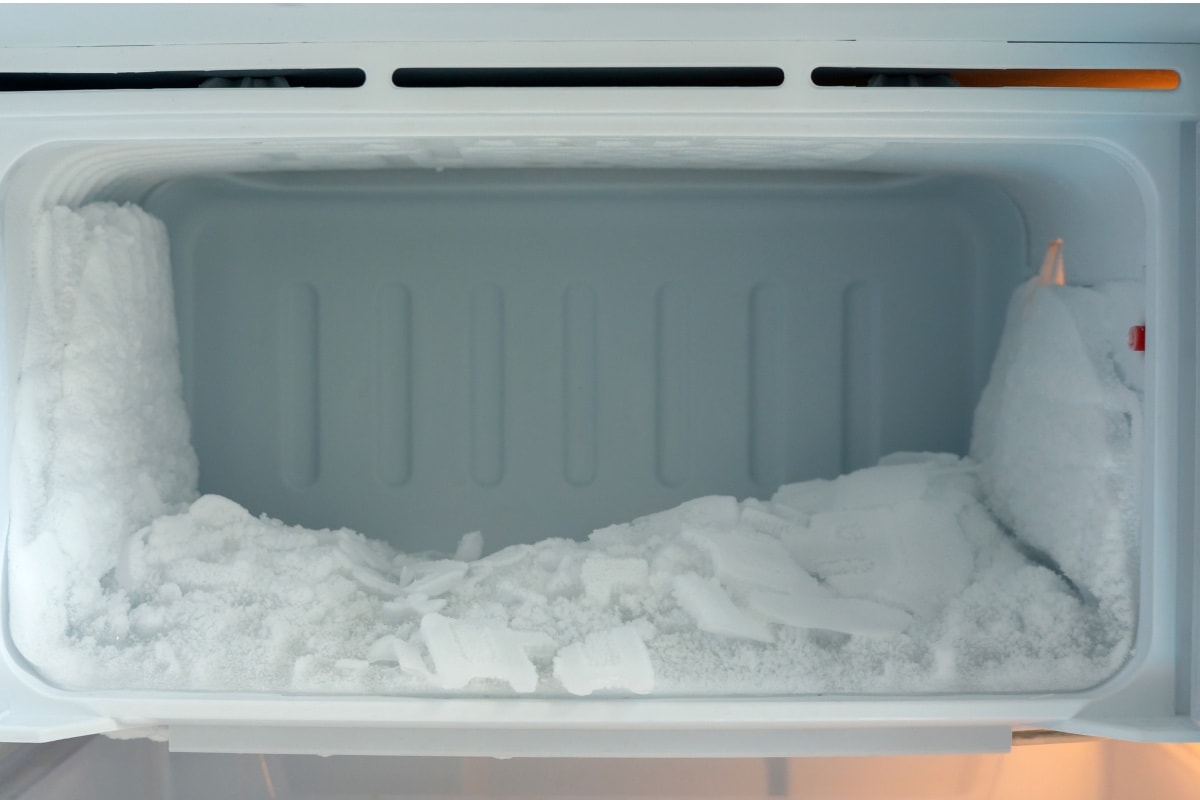
Similar to overfilling, a thick pile of ice might obstruct the airflow. It also drops during defrosting or inconsistent temperatures.
Loose or Unsecured Parts

When you hear a loud rattling noise near the floor of the refrigerator, it is likely that the drain pan is not secure.
Damaged Internal Parts
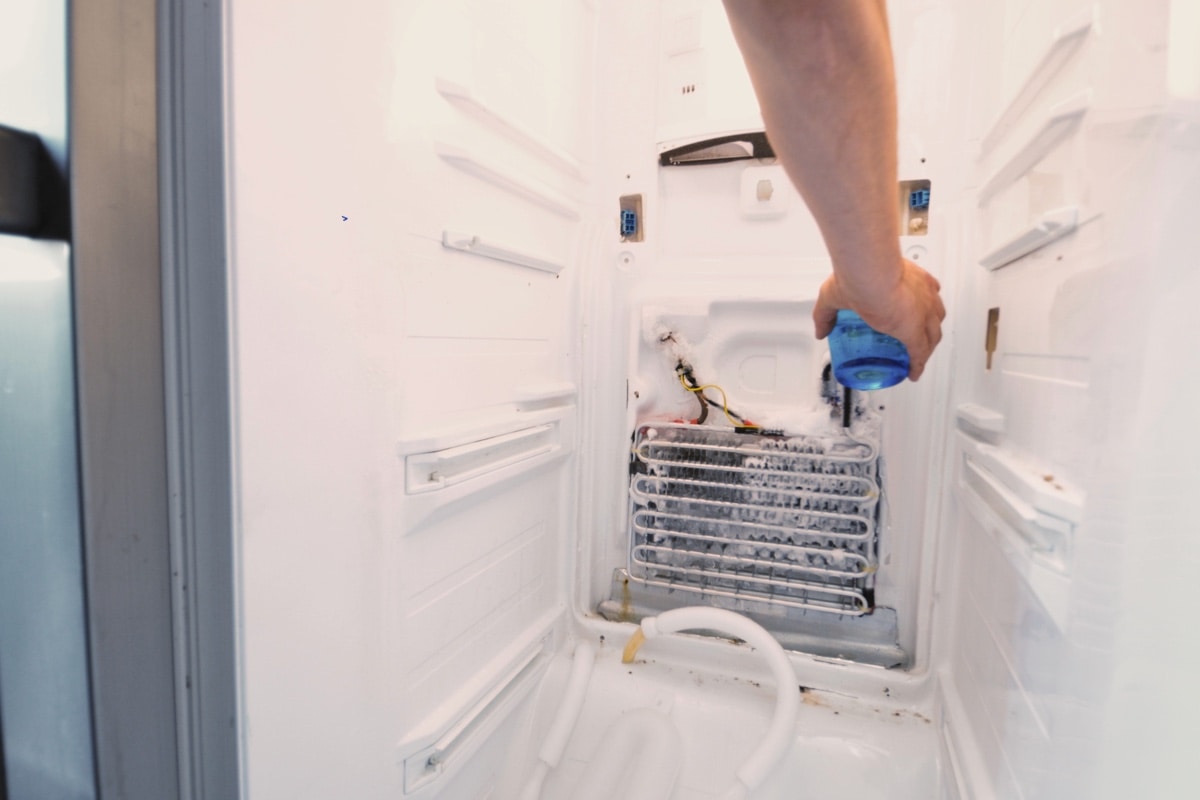
Internal parts of the fridge, such as fans, compressors, and refrigerants, produce noise when broken or dislocated.
Restricted Water Valve
Another element that creates vibrations is the restricted valve of the built-in water dispenser. It might be filled with dirt or damaged.
Uneven Rollers
These rollers allow your unit to remain upright and stable. Hence, sloped flooring or platform and damaged rollers can affect the object's position inside.
Why Is My Fridge Making Noise But Stops When The Door Opens?
If you observed that fridge noise subsides when opened, this is normal. The compressor fans only rotate when you close the door. So, you'll hear an engine sound inconsistently.
This mechanism maintains a good airflow for enclosed units like fridges.
For more insights on how to solve this noise, view this guide: Fridge Buzzing Stops When Door Open—Is This Ok?
When Should I Worry About My Fridge Noises?
You should worry when the noises become too loud or different from the usual pattern. Likewise, if it doesn't diminish and affects the overall performance of your fridge despite all your efforts to fix it. Thus, it is time to ask for help from the experts.
How Do I Quiet A Noisy Refrigerator Compressor?
Before calling the HVAC professionals, perform an initial solution first to eliminate simple causes of malfunctions. Consider the following techniques to quiet a rowdy fridge like a pro:
Find The Source
As a rule of thumb, check the inside, bottom, and back of the refrigerator. If you hear it from the inside, the circulation fan or icemaker is most likely the cause.
Meanwhile, the drain pan is at the bottom, whereas the back noise is because of the compressor.
Conduct General Cleaning
Remove spoiled goods and frost build-up at least once a month. Then, wipe off the area using a clean wet microfiber cloth. It will enhance the airflow and improve the odor in the unit.
Similarly, get rid of hair and dust accumulation with a dry rag. Dirt-free coils improve overall performance.
Remember to dry the surfaces entirely before switching on your fridge.
Click here to see this pack of microfiber cloth on Amazon.
Replace The Broken Fan
There are two sources of noise from the fan. It includes a damaged motor or shattered blades. Fortunately, you can replace these parts individually.
Click here to see this evaporator fan motor on Amazon.
Check The Capacitor And Compressor
The compressor and capacitor work jointly. Thus, inspect whether one of them has a defect.
Can A Noisy Fridge Cause A Fire?
A noisy fridge can be a fire hazard, especially older models that lack safety features.
Also, the capacitor alongside the compressor has electrical components. These elements can lead to a fire in the fridge for two reasons.
First, the water level from the drip pan overflows to the overload protector or relay. If it goes on, it may short circuit, and eventually a fire happens.
Second, extreme heating occurs because of the interruption of the start relay coil windings. It can lead to a fire or even an explosion.
Safety Measures
Practice these safety measures to reduce the risk of short circuits in your fridge.
- Check the parts upon purchase or during regular maintenance.
- Avoid storing flammable materials near the area such as paint, lacquer, and aerosol spray.
- Fix chipped or broken wirings immediately.
- Keep the fridge dry, especially after cleaning.
- Install a functional smoke alarm in your kitchen.
- Remove the plug when you suspect a problem.
- Know whether manufacturers recalled the model of your fridge because of certain mechanical defects.
What Are The Signs Of A Bad Refrigerator Compressor?
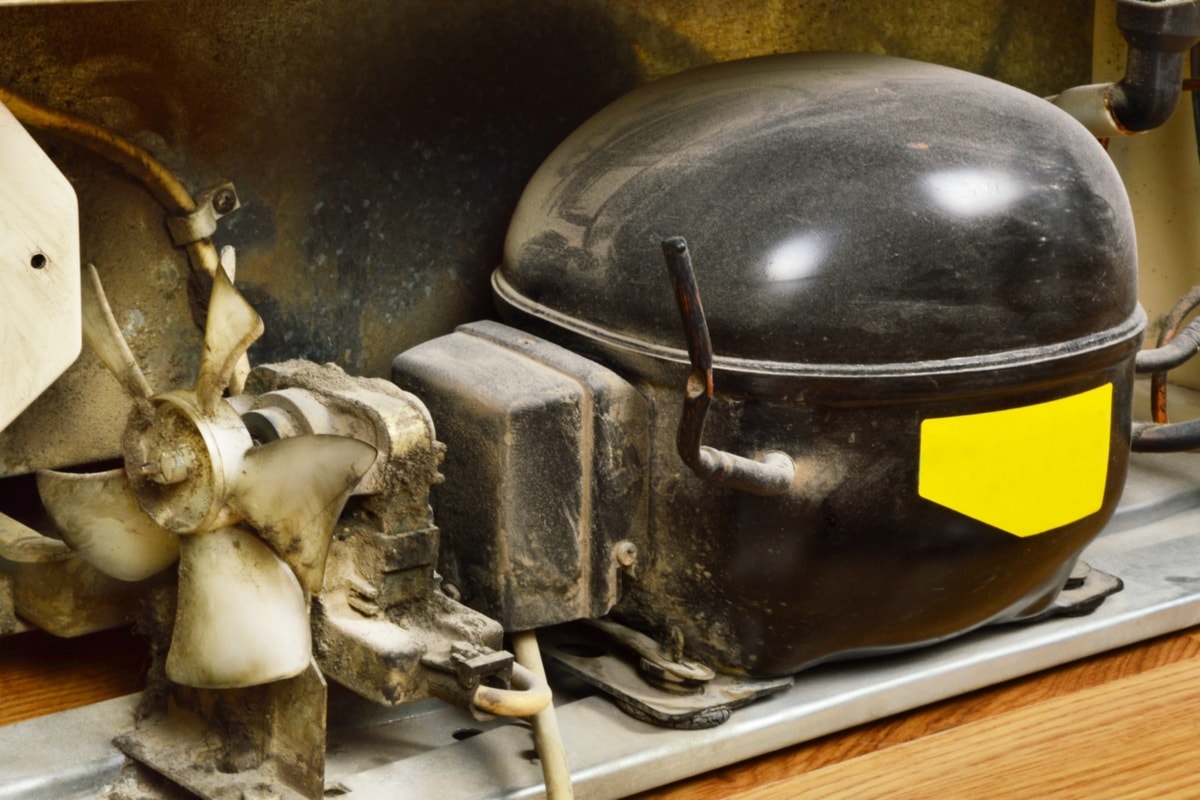
Compressors play a huge role in any refrigerator. A damaged compressor requires a considerable budget for repair or replacement.
Aside from the noisy compressor, watch for other signs that this is an issue.
Here are some telltale signs of a failing compressor.
- It has a premature or struggling start relay.
- Clicking sounds happen every few minutes.
- Cooling is inefficient, causing food spoilage.
- The freezer creates excessive frost.
- The light fixtures do not work when the door opens.
- No humming sounds while it is on.
- It emits an oil or a burnt-like odor.
- Its motor overheats and shuts off.
- You pay unexpectedly high energy bills.
What Causes Fridge Compressor Failure?
Knowing the causes of a faulty compressor helps you address issues or prevent further damage.
- Other liquids or substances contaminated the compressor aside from the oil and refrigerant.
- The refrigerant is insufficient or excessive.
- The refrigerant is incompatible with the appliance.
- Lubrication or oil is absent.
- It is part of the normal wear and tear of appliances that are at least 10-years-old.
- The fridge is in a heated area.
- Coils are dirty and frozen.
- Its position causes poor ventilation.
How To Check The Faulty Fridge Compressor?
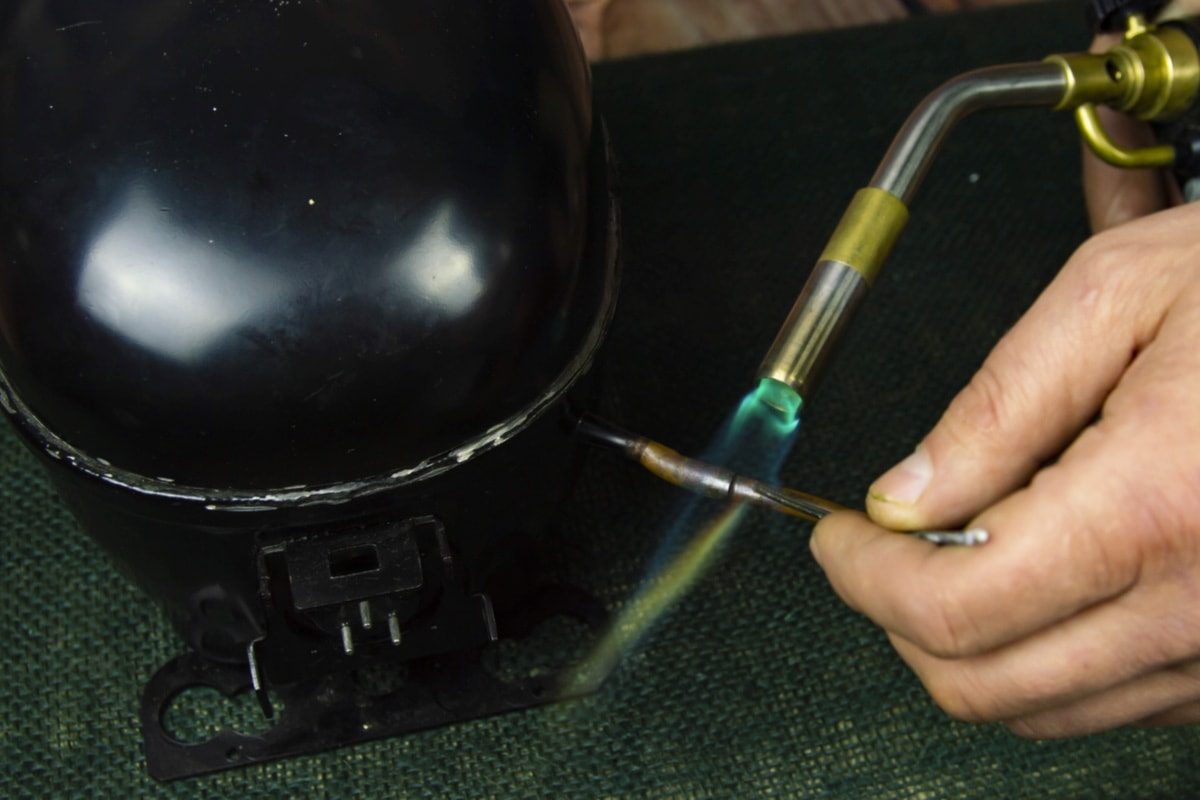
Authorities require a certified technician to verify the defective compressor. Even so, it's handy to know the basics.
- Locate the compressor. You can usually find the compressor at the lower back of the refrigerator.
- View the compressor windings and shorted motor windings. If it produces a rattling sound, it is likely defective.
- Use a digital multimeter with a flashlight to check the levels of electrical properties, such as the voltage and circuit continuity.
Click here to see this digital multimeter tester on Amazon.
Watch this video to perform the Ohm test in your compressor using a multimeter.
How Much Does It Cost To Replace A Refrigerator Compressor?
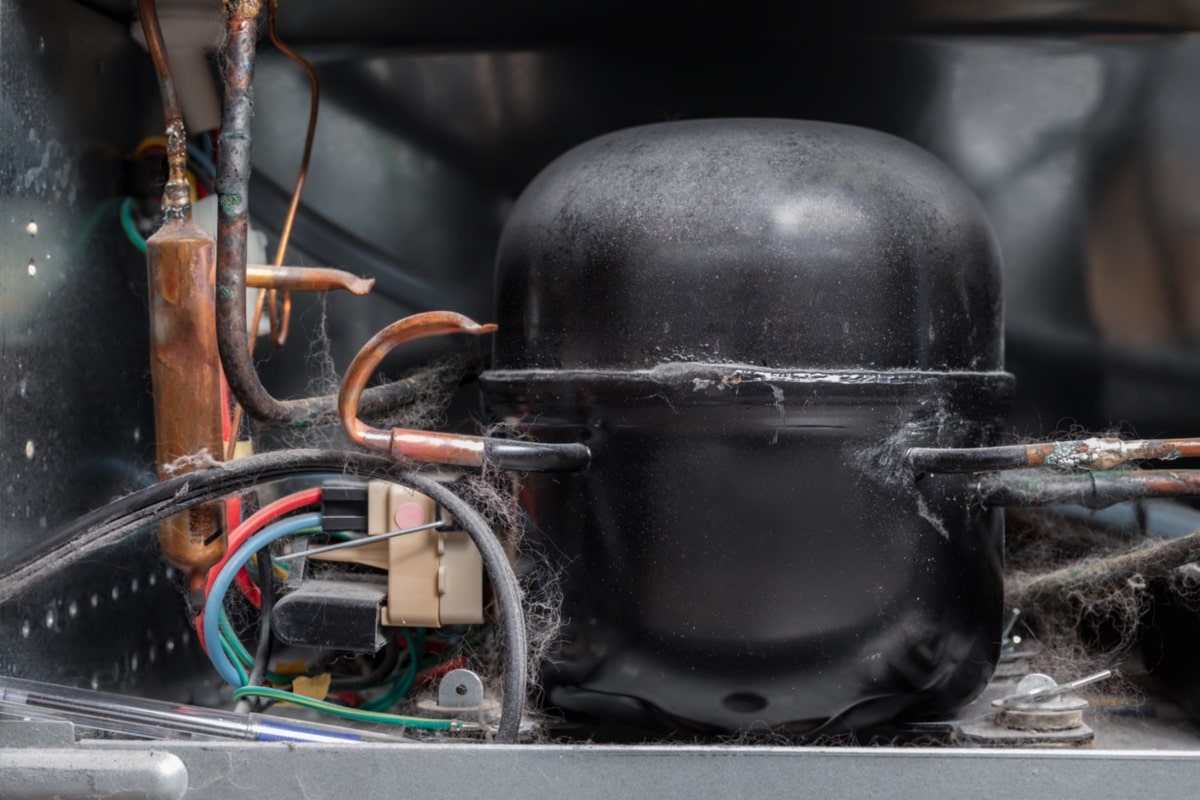
When the compressor does not run anymore, one way to solve it is by replacing this part. Prices vary depending on your fridge type and size.
Plan to allot $200 to $650 on average to change the faulty fridge compressor, including labor. Meanwhile, the DIY option is more affordable, ranging from $100 to $500.
It is still practical to opt for compressor replacement rather than buying a new unit, even though it was over 5-years-old. However, it is challenging to find available new parts for an older model.
Final Thoughts
Hearing sounds while your fridge is working is typical. However, it becomes problematic when they become too loud for a long period. Although some sounds are unavoidable, you can reduce or eliminate unnecessary ones by performing preliminary checks.
Afterward, we encourage you to consult with HVAC technicians to provide an in-depth assessment and find solutions. Finally, do not overlook any sound because it may serve as a warning against danger.
Thanks for reading! If you enjoyed this post, explore these articles about common problems with the fridge:
Fridge Not Cooling, But Light Is On - What To Do?
How Long Does Poke Last In The Fridge?




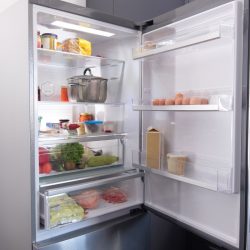

![Disassembled refrigerator compressor, How To Quiet A Noisy Refrigerator Compressor [8 Different Ideas]](https://kitchenseer.com/wp-content/uploads/2022/03/Dissaembled-refrigerator-compressor-250x250.jpg)

